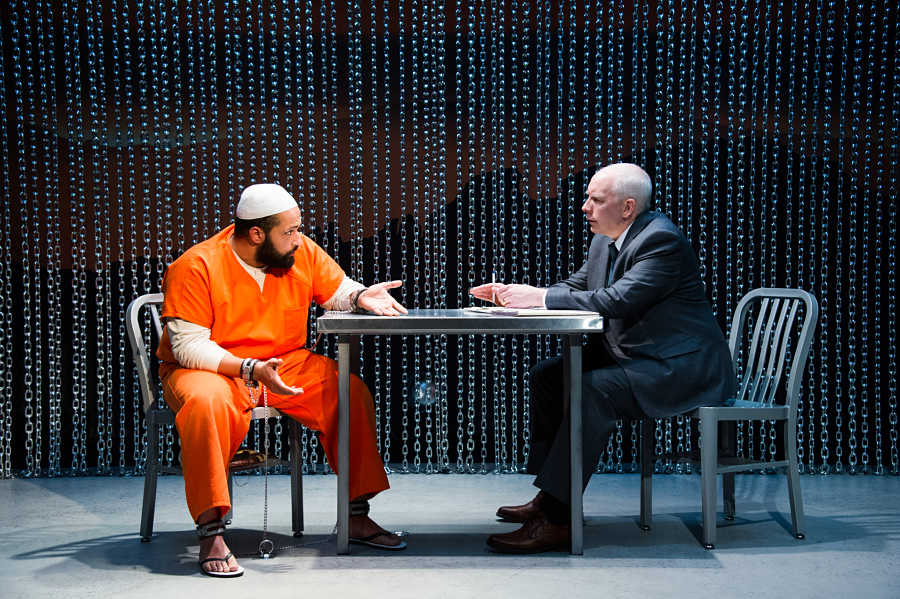The Women’s Voices Theater Festival in Washington, D.C., is echoing back for a second run, following the success of the festival’s first iteration in 2015. From Jan 15 to Feb. 15, 24 professional theatres in the greater metropolitan D.C. area will present world premiere and second and third runs of plays by female playwrights.
One indicator of the first festival’s success is the number of subsequent productions it catalyzed. Festival producer Nan Barnett estimates that there have been “more than 40 productions of the plays that ran in the first festival, and being able to elevate those voices and lift those plays up has been huge.”
The voices that will be elevated this time include 22 single generative artists, 11 of them women of color. Out of the 24 plays, 11 are by D.C.-area writers and 2 are from international artists. Said Barnett, “We’re really excited by the fact that not only were we able to bring forward women of color but also our D.C.-based playwrights in a way that I think will prove very fruitful for them beyond this festival.”
One of these playwrights is Heather Raffo, whose new play Noura (at Shakespeare Theatre Company, Feb. 6-March 11) explores the connection her characters have formed with their community’s rules and what elements they choose to carry forward or leave behind. Her characters’ decisions are complicated by the different sense of community in the U.S. versus Eastern culture.
“American culture really does pride itself on rugged individualism,” said Raffo, “so even though our communities can be very rich and very connected, the way that culture and country works is with the goal of finding yourself and being yourself… our capitalist ways of pursuing that are quite vertical. Eastern culture is very different—it’s very horizontal, community-connected, and it’s very hard, male or female, to step out on your own. You’ve got to take your whole family, your whole peoples with you.”
The concept for the play grew from work Raffo had done with Middle Eastern women in their 20s, helping them to tell their own stories. “About halfway through this two- or four-year long workshop, we read A Doll’s House together, and they started really tackling this idea: If you leave home, then what? Because they’d all done it,” said Raffo.
She wanted to stress that Noura is not an adaptation of Ibsen’s play, that “it’s 100 percent a new contemporary work…I’ve used the words ‘reimagine’ in the past, and I’ve found that everyone still thinks that we’re doing the work of Ibsen anew. We’re more pissed off at the Ibsen than we are inspired by it.”

Annalisa Dias’s new play, 4,380 Nights, tackles a very different challenge: forced immobility as opposed to autonomous departure. Her play chronicles the struggle of a Guantanamo Bay detainee whose confinement is fundamental to the play’s premise. Dias admits that the play has sparked a persistent question: “What actually happens? How do you get from point A to point B? In this play the central plot point is that nothing happens—you have to deal with what can be frustrating for an audience to watch, which is a character that for the entire first act is chained to the floor.”
This perceived inaction is exactly what conveys the obstacles faced by her protagonist, Malik. “What would it have been like—is it like—for people who are detained still after 10 or 11 years? All of the 41 people who are still detained at Guantanamo have been there for more than 10 years. So on some level I heard people asking, ‘But there’s nothing that happens in the play,’ and I’m like, ‘Correct! That’s the point.’”
For Dias, a cofounder of the D.C. Coalition for Theatre and Social Justice whose works more often resemble community organizing than traditional theatre models, the festival gives her a chance to present her work on a large regional theatre stage: Signature Theatre in Arlington, Va., where it runs Jan. 16-Feb. 18.
“One of the original goals of the festival was to raise awareness of the diversity of works being produced every year in D.C., and of course to bring attention to plays by women and the works that are being produced by them,” said Barnett. “Certainly there’s been a great deal of awareness raised by the first festival, and we were a part of that early conversation of getting plays into the pipeline.”
Though the festival’s programming was decided well before the #MeToo movement, and some elements even before the 2016 presidential election, the larger political landscape has had a big impact on how this iteration of the festival is being received.
“Everyone’s talking about #MeToo and all the press wants us to reflect on it,” said Raffo. “My big takeaway from this Women’s Voices Festival is that you cannot pull out artists like this only when the going gets tough; artists like myself and the women I’m surrounded with, we’re like canaries in the coal mine. We’ve been saying it, we’ve been writing about it, and if we were mainstage voices regularly, I wonder what the national conversation might be and how it might be different. We were doing the work; the rest of the world is now tuning in because they’re in crisis.”
The plays in this year’s festival not only tackle traditional women’s issues but also weighty political topics, with three plays focusing on international legacies of colonization, including Dias’s. “It’s exciting that women aren’t just expected to write about what have traditionally been ‘women’s issues,’” said Dias. “We can write about whatever we want and should be able to write about whatever we want. All of these big international political struggles are women’s issues. It’s not just that women’s issues are limited to female bodies and female spaces…we also inhabit the world.”


